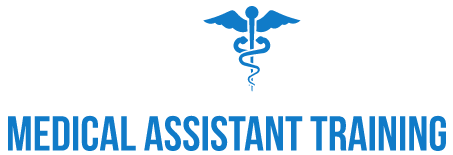Technological Tools and Equipments Used by Medical Assistants
The role and job duties of a medical assistant can differ. It varies from from one state to the other. It also depends on various factors such as, the medical field in which he/she works, different kinds of medical procedures and technologies that are permitted. The major part is that the job duties mainly depend on the exact education a medical assistant has completed. In general, after completing a certificate program a MA is specifically equipped to perform both clinical and administrative office duties. On the other hand, candidates who are armed with an associate degree in medical assisting are typically equipped to work with different medical technologies, for instance, cardiovascular technology, X-ray machines, laboratory testing tools and other specialized medical equipments. Following are different technological tools and equipments used by medical assistants:
Technical tools used by administrative medical assistants
A medical assistant who works in a physician’s work place, hospital or in any other health care service center will be provided with general office tasks. More often than not, he/she will be the primary caretaker for a patient who visits the health care center. For this reason, medical assistants are expected to be well-mannered, considerate and extremely professional in their job. In the medical office backgrounds, he should have to operate general office tools, for instance a photocopier, computer, fax machine and lot of other typical office technological tools. As a general medical office assistant, a person is generally accountable for maintaining office documents or records, health check records, appointment scheduling and general office fund handling. Hence, they need the computer expertise and computer operating techniques for performing these tasks. However, in some medical office settings, a medical assistant will also note down (record) a patient’s health history, arrange and organize the medical reports and write a report on the laboratory test results. So, he/she is expected to operate and manage the laboratory equipments.
Clinical medical assistants equipments
Medical assistants who hold an associate degree will most probably work in a medical setting. Time and again, they are in charge of drawing blood from patients (for various tests). In such situations, they make use of blood collection or single draw needles. While checking the blood pressure of the patients, they make use of the electronic blood pressure measuring piece of equipment. Also, they are trained to operate high frequency ultrasound machines, computerized or pre programmed analytical (multi-channel) electrocardiography equipment in order to check the patient’s heart beat rhythms. They are also trained in operating computerized blood chemistry analyzers. In addition, clinical medical assistants often administer the essential medications to the patients by injecting the medicine by means of an intravenous line or oral administration.
X-ray medical assistants equipments
A medical assistant who is specialized in using x-ray technology are equipped to activate and control an assortment of medical technological tools. They handle simple medical equipments that are used to check vital signs for example, pulse, blood pressure and respiration. In addition, they also are trained to capture X-rays, record Electrocardiogram and Echo-cardiogram. They also help and support the GYN/OB examinations. The specialized skill to operate medical X-ray units, a lot of which these days has become as a highly-sophisticated digital technology is also essential for a medical assistant. This advanced technology is mandatory in almost every medical facility now a days. In fact, this special requirement trains and offers many medical assistants to work in a broad range of health care settings starting from clinics, medical laboratories, hospitals to sports and ambulance health care centers.
Cardiovascular medical assistants technological tools
A degree in cardiovascular expertise is considered to be a high-demand career for medical assistants in the upcoming future. This degree trains a medical assistant to work with several heart patients. In addition, this expertise entails a methodical knowledge of human physiology and anatomy in addition to the extra skills in the fields such as, electrocardiography, pharmacology and some other areas. A medical assistant will be well trained to work with a cardiovascular team of medical experts. He or she should have the abilities and skills to carry out several non-invasive medical procedures. For example, they perform procedures such as, cardiac pacing, Echocardiography, sonogram and cardiovascular studies.
Specialized medical assistants accessories
There are a few medical assistants who are employed in specialized clinical fields. For instance, in the Podiatric care. In such fields, the medical assistants have the necessity to work with health care providers who specialize in foot treatment and care. These specialized medical assistants will be expected to manage and operate a range of technological tools. In general, a Podiatric medical assistant will be expected to obtain castings of the patients’ feet, operate special X-ray machines, capture X-rays and to assist the podiatrist while performing minor surgical procedures.
Ophthalmic medical assistants tools
Assistants who work with ophthalmologists should be familiar with ophthalmic retinoscopes, lensometers, otoscopes and ophthalmoscopes. These medical assistants are trained to do special vision tests to find out the proper functioning of eye muscles, to measure the range of vision and are trained to do other diagnostic vision examinations. Often, the duties of an ophthalmic medical assistant include various tasks such as, the maintenance of surgical tools and, ocular equipment. While working with patients, they use their skills of proper eye dressing, contact lens application and the professional application of eye drops or medication with the patients.
